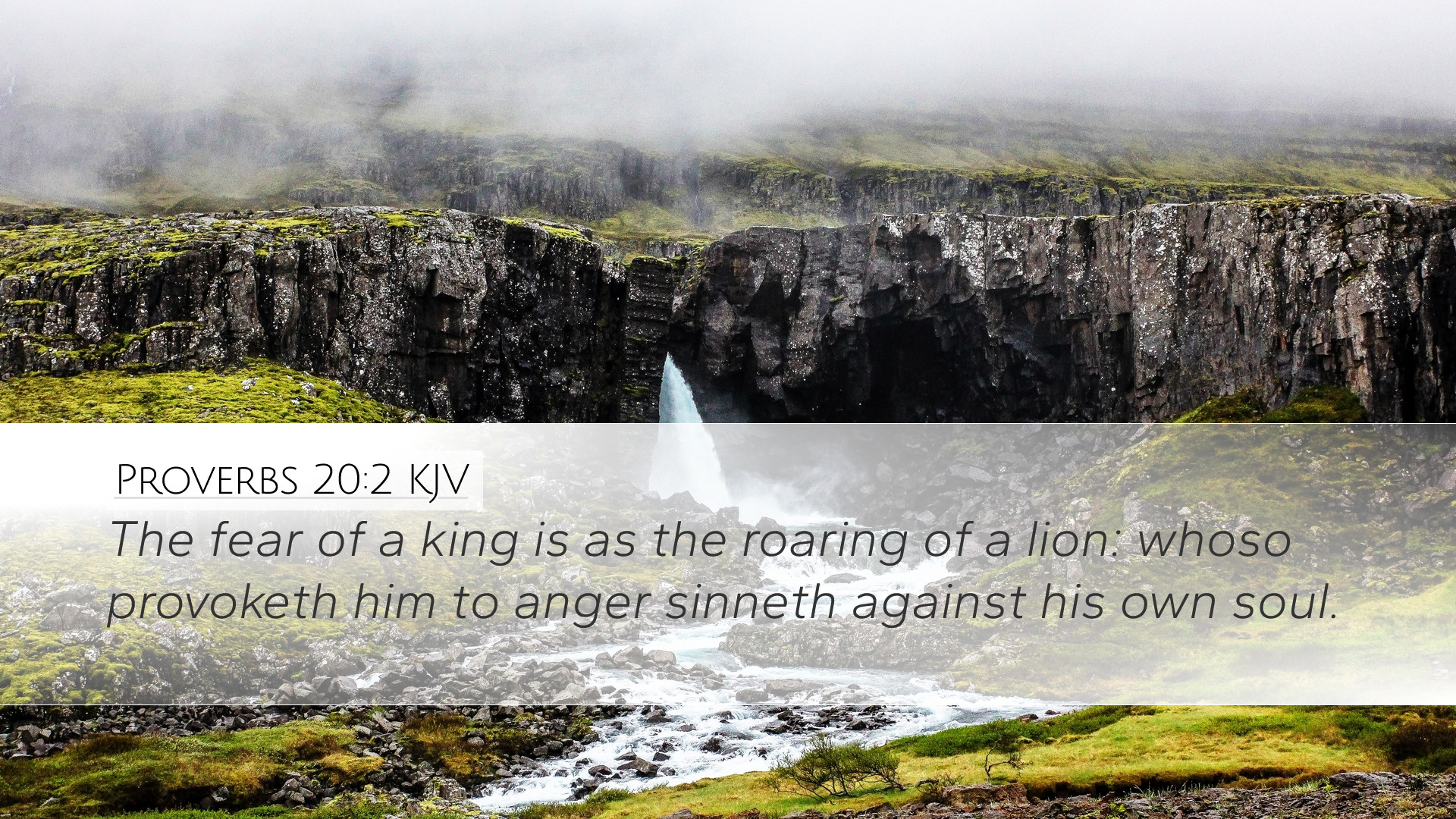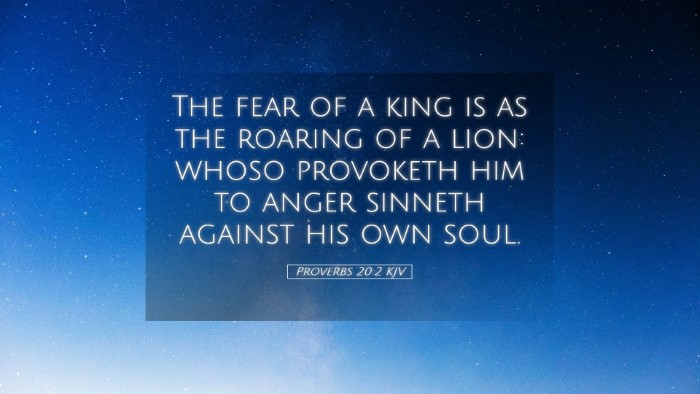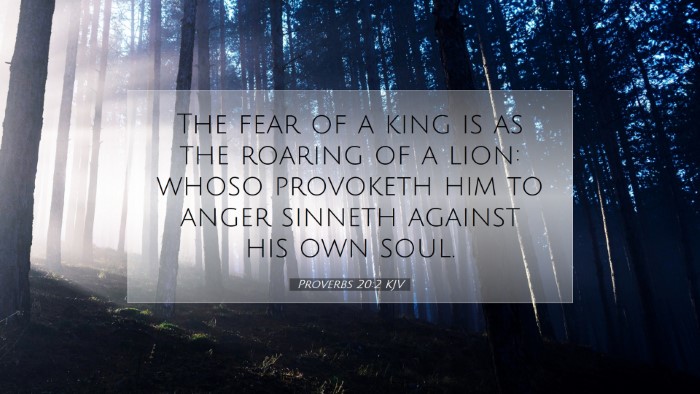Commentary on Proverbs 20:2
Verse (Proverbs 20:2): "The fear of a king is as the roaring of a lion; whoso provoketh him to anger sinneth against his own soul."
This verse encapsulates a significant truth regarding authority, respect, and the consequences of provoking those in power. The imagery of a roaring lion is particularly poignant, illustrating the seriousness of anger from those in positions of authority.
Insights from Commentaries
Matthew Henry
Matthew Henry highlights the importance of the fear of the king, suggesting that it is not merely a respect for the individual but a steadfast recognition of the office he holds. He notes that a king’s anger can lead to dire consequences, akin to the ferocity of a lion. In this context, the fear of a ruler serves a dual purpose: it motivates good behavior among the subjects and acts as a deterrent to wrongdoing.
Henry emphasizes that provoking a king is equivalent to provoking one’s own destruction. This aligns with the broader biblical principle that authority is ordained by God, and disrespect towards it can have severe repercussions.
Albert Barnes
Albert Barnes examines the phrase “the fear of a king,” proposing that it refers to the reverence and caution that subjects ought to have towards their rulers. He interprets this fear as not just a reaction to the ruler's power but as part of a moral duty to uphold social order and harmony.
Barnes asserts that a king’s anger, likened to a lion’s roar, indicates a significant warning. The public should recognize the inherent danger in provoking authority, as it may lead to personal ruin. He suggests that this verse serves as a reminder of the need for wisdom in dealing with those in leadership positions, fostering godly conduct and submission to rightful authority.
Adam Clarke
Adam Clarke’s commentary offers a nuanced approach to understanding this proverb. He discusses the socio-political context, noting that a king’s power is often expressed through his ability to enact justice and preserve societal order. Clarke points out the consequences of insubordination, which can lead not only to personal harm but also to societal instability.
Clarke also reflects on the moral implication of the passage, suggesting that within the fear of a king lies an invitation to wisdom. By walking in alignment with the established authority, individuals can avoid conflict and promote peace and prosperity within their communities. He closes by emphasizing that those who fear God will also recognize the need to respect earthly authorities.
Thematic Reflections
The juxtaposition of fear and respect in the context of authority is a recurring theme in biblical literature. Proverbs 20:2 serves as a critical reminder that earthly rulers are instruments of God’s providence. The imagery of a lion underscores the weightiness and potential danger of anger; hence, revering a king becomes an act of wisdom.
Moral and Ethical Considerations
- Respect for Authority: Hebrews 13:17, where believers are admonished to obey their leaders, reflects a similar sentiment to that expressed in this proverb.
- Consequences of Disobedience: Throughout scripture, there are warnings about the dangers of rebelling against lawful authority (e.g., Romans 13:1-7).
- Personal Reflection: This proverb prompts a personal examination of how one engages with authority figures. Are we respectful, or do we provoke undue anger?
Conclusion
Proverbs 20:2 encapsulates essential truths about the relationship between subjects and rulers. It teaches that a healthy fear of authority is rooted in wisdom and can lead to peace. For pastors, students, theologians, and Bible scholars, this verse serves as a profound reminder of the broader implications of authority in the Christian life and the importance of engaging with it thoughtfully and respectfully.


